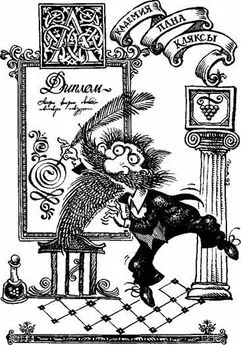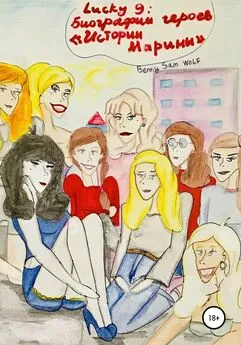Kingsley Amis - Lucky Jim
- Название:Lucky Jim
- Автор:
- Жанр:
- Издательство:неизвестно
- Год:неизвестен
- ISBN:нет данных
- Рейтинг:
- Избранное:Добавить в избранное
-
Отзывы:
-
Ваша оценка:
Kingsley Amis - Lucky Jim краткое содержание
Lucky Jim - читать онлайн бесплатно полную версию (весь текст целиком)
Интервал:
Закладка:
Dixon had resolved to travel to the Welches' by bus to avoid Johns's company, so he now got up, thinking he ought to impart some specific warning to Atkinson. Unable to fix on anything, however, he left the room. Behind him he heard Atkinson speaking to Johns again: 'Sit down and tell me about your oboe.'
A few minutes later Dixon, carrying a small suitcase, was hurrying through the streets to his bus stop. At the corner of the main road he had a view downhill to where the last few terraced houses and small provision shops began to give place to office blocks, the more fashionable dress-shops and tailors, the public library, the telephone exchange, and a modern cinema. Beyond these again were the taller buildings of the city centre with its tapering cathedral spire. Trolley-buses and buses hummed or ground their way towards it and away from it, with columns of cars winding, straightening, contracting, and thinning out. The pavements were crowded. As Dixon crossed the road, the sight of all this energy made his spirits lift, and somewhere behind his thoughts an inexplicable excitement stirred. There was no reason to suppose that the week-end would contain anything better than the familiar mixture of predicted boredom with unpredicted boredom, but for the moment he was unable to believe this. The acceptance of his article might be the prelude to a run of badly-needed luck. He was going to meet some people who might well prove interesting and amusing. If not, then he and Margaret could relish talking about them. He must see that she enjoyed herself as far as possible, and doing this would be easier in the presence of others. In his case was a small book of verse, by a contemporary poet he privately thought very nasty, which he'd bought that morning as a completely unprovoked gift to Margaret. The surprise would combine nicely with the evidence of affection and the flattery implied in the choice. A routine qualm gave him trouble at the thought of what he'd written on the fly-leaf, but his mood enabled him to suppress it.
IV
'OF course, this sort of music's not intended for an audience, you see,' Welch said as he handed the copies round. 'The fun's all in the singing. Everybody's got a real tune to sing - a real tune,' he repeated violently. 'You could say, really, that polyphony got to its highest point, its peak, at that period, and has been on the decline ever since. You've only got to look at the part-writing in things like, well, Onward, Christian Soldiers , the hymn, which is a typical… a typical…'
'We're all waiting, Ned,' Mrs Welch said from the piano. She played a slow arpeggio, sustaining it with the pedal. 'All right, everybody?'
A soporific droning filled the air round Dixon as the singers hummed their notes to one another. Mrs Welch rejoined them on the low platform that had been built at one end of the music-room, taking up her stand by Margaret, the other soprano. A small bullied-looking woman with unabundant brown hair was the only contralto. Next to Dixon was Cecil Goldsmith, a colleague of his in the College History Department, whose tenor voice held enough savage power, especially above middle C, to obliterate whatever noises Dixon might feel himself impelled to make. Behind him and to one side were three basses, one a local composer, another an amateur violinist occasionally summoned at need by the city orchestra, the third Evan Johns.
Dixon ran his eye along the lines of black dots, which seemed to go up and down a good deal, and was able to assure himself that everyone was going to have to sing all the time. He'd had a bad setback twenty minutes ago in some Brahms rubbish which began with ten seconds or so of unsupported tenor - more accurately, of unsupported Goldsmith, who'd twice dried up in face of a tricky interval and left him opening and shutting his mouth in silence. He now cautiously reproduced the note Goldsmith was humming and found the effect pleasing rather than the reverse. Why hadn't they had the decency to ask him if he'd like to join in, instead of driving him up on to this platform arrangement and forcing sheets of paper into his hand?
The madrigal began at the bidding of Welch's arthritic forefinger. Dixon kept his head down, moved his mouth as little as possible consistent with being unmistakably seen to move it, and looked through the words the others were singing. 'When from my love I looked for love, and kind affections due,' he read, 'too well I found her vows to prove most faithless and untrue. But when I did ask her why…' He looked over at Margaret, who was singing away happily enough - she turned out regularly during the winter with the choir of the local Conservative Association - and wondered what changes in their circumstances and temperaments would be necessary to make the words of the madrigal apply, however remotely, to himself and her. She'd made vows to him, or avowals anyway, which was perhaps all the writer had meant. But if he'd meant what he seemed to mean by 'kind affections due', then Dixon had never 'looked for' any of these from Margaret. Perhaps he should: after all, people were doing it all the time. It was a pity she wasn't a bit better-looking. One of these days, though, he would try, and see what happened.
'Yet by, and by, they'll arl, deny, arnd say 'twas bart in jast,' Goldsmith sang tremulously and very loudly. It was the last phrase; Dixon kept his mouth open while Welch's finger remained aloft, then shut it with a little flick of the head he'd seen singers use as the finger swept sideways. All seemed pleased with the performance and anxious for another of the same sort. 'Yes, well, this next one's what they called a ballet. Of course, they didn't mean what we mean by the similar… Rather a well-known one, this. It's called Now is the Month of Maying . Now if you'll all just…'
A bursting snuffle of laughter came from Dixon's left rear. He glanced round to see Johns's pallor rent by a grin. The large short-lashed eyes were fixed on him. 'What's the joke?' he asked. If Johns were laughing at Welch, Dixon was prepared to come in on Welch's side.
'You'll see,' Johns said. He went on looking at Dixon. 'You'll see,' he added, grinning.
In less than a minute Dixon did see, and clearly. Instead of the customary four parts, this piece employed five. The third and fourth lines of music from the top had Tenor I and Tenor II written against them; moreover, there was some infantile fa-la-la-la stuff on the second page with numerous gaps in the individual parts. Even Welch's ear might be expected to record the complete absence of one of the parts in such circumstances. It was much too late now for Dixon to explain that he hadn't really meant it when he'd said, half an hour before, that he could read music 'after a fashion'; much too late to transfer allegiance to the basses. Nothing short of an epileptic fit could get him out of this.
'You'd better take first tenor, Jim,' Goldsmith said; 'the second's a bit tricky.'
Dixon nodded bemusedly, hardly hearing further laughter from Johns. Before he could cry out, they were past the piano-ritual and the droning and into the piece. He flapped his lips to: 'Each with his bonny lass, a-a-seated on the grass: fa-la-la la, fa-la-la-la-la-la la la-la…' but Welch had stopped waving his finger, was holding it stationary in the air. The singing died. 'Oh, tenors,' Welch began; 'I didn't seem to hear…'
An irregular knocking on the door at the far end of the room was at once followed by the bursting-open of this door and the entry of a tall man wearing a lemon-yellow sports-coat, all three buttons of which were fastened, and displaying a large beard which came down further on one side than on the other, half-hiding a vine-patterned tie. Dixon guessed with surging exultation that this must be the pacifist painting Bertrand whose arrival with his girl had been heralded, with typical clangour, by Welch every few minutes since tea-time. It was an arrival which must surely prove an irritant sooner or later, but for the moment it served as the best possible counter-irritant to the disastrous madrigals. Even as Dixon thought this, the senior Welches left their posts and went to greet their son, followed more slowly by the others who, perhaps finding the chance of a break not completely unwelcome, broke into conversation as they moved. Dixon delightedly lit a cigarette, finding himself alone: the amateur violinist had got hold of Margaret; Goldsmith and the local composer were talking to Carol, Goldsmith's wife, who'd refused, with enviable firmness, to do more than sit and listen to the singing from an armchair near the fireplace; Johns was doing something technical at the piano. Dixon moved down the room through the company and leaned against the wall at the end by the door where the bookshelves were. Placed here, savouring his cigarette, he was in a good position to observe Bertrand's girl when she came in, slowly and hesitantly, a few seconds later, and stood unnoticed, except by him, just inside the room.
In a few more seconds Dixon had noticed all he needed to notice about this girl: the combination of fair hair, straight and cut short, with brown eyes and no lipstick, the strict set of the mouth and the square shoulders, the large breasts and the narrow waist, the premeditated simplicity of the wine-coloured corduroy skirt and the unornamented white linen blouse. The sight of her seemed an irresistible attack on his own habits, standards, and ambitions: something designed to put him in his place for good. The notion that women like this were never on view except as the property of men like Bertrand was so familiar to him that it had long since ceased to appear an injustice. The huge class that contained Margaret was destined to provide his own womenfolk: those in whom the intention of being attractive could sometimes be made to get itself confused with performance; those with whom a too-tight skirt, a wrong-coloured, or no, lipstick, even an ill-executed smile could instantly discredit that illusion beyond apparent hope of renewal. But renewal always came: a new sweater would somehow scale down the large feet, generosity revivify the brittle hair, a couple of pints site positive charm in talk of the London stage or French food.
The girl turned her head and found Dixon staring at her. His diaphragm contracted with fright; she drew herself up with a jerk like a soldier standing easy called to the stand-at-ease position. They looked at each other for a moment, until, just as Dixon's scalp was beginning to tingle, a high, baying voice called 'Ah, there you are, darling; step this way, if you please, and be introduced to the throng' and Bertrand strode up the room to meet her, throwing Dixon a brief hostile glance. Dixon didn't like him doing that; the only action he required from Bertrand was an apology, humbly offered, for his personal appearance.
Dixon had been too distressed at the sight of Bertrand's girl to want to be introduced to her, and kept out of the way for a time; then he moved down and started talking to Margaret and the amateur violinist. Bertrand dominated the central group, doing a lot of laughing as he told some lengthy story; his girl watched him intently, as if he might ask her later to summarize its drift. Coffee and cakes, intended to replace an evening meal, were brought in, and getting enough of these for himself and Margaret kept Dixon fully occupied. Then Welch came up to him and said, inexplicably enough: 'Ah, Dixon, come along now. I want you to meet my son Bertrand and his… his… Come along.'
With Margaret at his side, Dixon was soon confronted by the two people Welch wanted him to meet and by Evan Johns. 'This is Mr Dixon and Miss Peel,' Welch said, and drew the Goldsmiths away.
Читать дальшеИнтервал:
Закладка:







